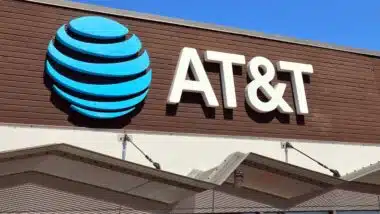
Although banks and credit unions are permitted to charge non-sufficient funds or NSF fees, some consumers claim that these institutions are engaging in unethical or predatory practices when doing so.
What is an NSF fee?
A non-sufficient funds (NSF) fee (also known as a returned item fee) is charged when a consumer attempts to make a transaction or purchase without having adequate funds in their account to cover the purchase. When this occurs, the bank will deny the transaction and charge a fee to the account.
NSF fees may be assessed for attempted online or in-person purchases, returned checks, or denied ATM withdrawals. The charge for an NSF fee generally ranges between $27 and $35.
State laws limit the amount of a single NSF fee, with many states capping the amount between $20 and $35. Delaware and Mississippi have a cap of $40 per fee. Each state operates differently though all cap the fees at a maximum percentage of the transaction amount.
Even though the fees may seem relatively low in a single instance, they can quickly add up when multiple are incurred. And unlike overdraft fees, NSF fees do not require consumers to opt-in before they get charged.
How can you avoid an NSF fee charge?
There may be several ways for consumers to avoid an NSF fee charge. One way is to set up online banking and monitor the funds in your accounts. Some consumers have reported discrepancies between the available balance posted in online banking statements and the actual amount of funds they are able to withdraw so it’s a good idea to know how your financial institution operates.
Another way to avoid an NSF fee is to keep records of your spending rather than relying on your bank’s records. Keeping a checkbook ledger or another method of tracking your spending provides a way to keep an eye on your accounts.
However, many banks and credit unions process transactions out of chronological order, which makes it more difficult for consumers to understand how and when they may be assessed an NSF fee.
Finally, consumers may be able to opt-in to overdraft protection. With overdraft protection, consumers who attempt to make a purchase or transaction without adequate funds in their account are given what is essentially a loan by their bank. The bank covers the cost of the purchase and then assesses the customer an overdraft fee for doing so. If the customer has another account at the bank, the bank may transfer money from the second account to cover the overdraft. Overdraft fee costs may be comparable to the costs of NSF fees.
Of course, the best way to avoid paying NSF fees is to avoid incurring them in the first place. Monitor your bank account and be aware of recurring costs and automatic payments, and have a solid understanding of the difference between available and actual account balance.
 Are NSF fees predatory?
Are NSF fees predatory?
While it’s legal for banks and credit unions to assess an NSF fee when customers attempt to make a purchase they cannot cover, some consumers have reported being assessed multiple NSF fees for a single transaction. This may occur when banks or credit unions attempt to re-process the denied transaction several times after the initial attempt. These attempts to re-process the transaction are often done without the customer’s knowledge or consent, and an additional NSF fee may be assessed for each attempt. Customers of various banks have complained about these charges, calling them deceptive and predatory.
Indeed, these fees can quickly compound, adding up to big bucks, even for a relatively small transaction.
You may get hit with an NSF fee even if you recently made a deposit. This is because the actual balance in your account may be different than the available balance.
One of the worst parts of NSF fees is that they often have the most impact on people who can least afford them. If a person’s bank account balance is continuously low and they’re living paycheck to paycheck, they are constantly at far greater risk of getting charged an NSF fee or overdraft fee. These fees, in turn, can cause significant financial difficulties for lower-income Americans, who may not have room in their tight monthly budget for unexpected expenses.
In fact, many are choosing to go without a bank account entirely because of banking fees, turning instead to alternative banking options. According to a 2017 survey from the Federal Deposit Insurance Corporation (FDIC), there are about 8.4 million unbanked households in the U.S., plus another 24.2 million underbanked households.
Can you get an NSF fee refund?
Although NSF fees can add up quickly, it may be possible to get the fees refunded. It’s a good idea to contact your bank as soon as possible and deposit money into your account to cover any fees assessed after the denied transaction. Additionally, if you have never been charged an NSF fee before, you may be able to request that your bank waive it. If you have been a long-time customer at the bank it may be helpful to mention your loyalty.
It is not always easy to get bank fees waived, particularly if the financial institution uses predatory practices to maximize its fees.
If you are unable to convince your bank to issue a refund for deceptively charged NSF fees, you may be able to speak with an experienced attorney about your legal options.
How to join an NSF fee charge lawsuit
Many lawsuits have been filed against banks and credit unions for allegedly charging predatory NSF or overdraft fees. Some of these lawsuits have claimed that the banks re-order transactions out of chronological order, resulting in multiple fees being assessed for a single transaction, over-drafting the account. A 2016 Pew study found that at least 40% of banks engage in this practice.
Other lawsuits have claimed that multiple NSF fees were assessed for a single declined transaction after the bank attempted to re-process the transaction without the customer’s authorization or knowledge. Some customers say they were not aware that they were hit with multiple NSF fees for a single transaction until getting their bank statement.
Several banks and credit unions are currently under investigation by consumer attorneys for potentially engaging in predatory NSF fee practices. These include:
- Bancfirst
- Bell Bank
- Busey Bank
- Center Bank
- CenterState Bank
- Flagstar Bank
- Glacier Bank
- Wings Federal Credit Union
- Midwest One
- NBT Bank
Lawmakers target NSF fee charge during pandemic
Amidst the ongoing coronavirus crisis, two U.S. Senators have urged banks to waive NSF fees and other charges, reports CNBC’s Make It.
As businesses shut down and workers lost their jobs, Sen. Cory Booker (D-N.J.) and Sen. Sherrod Brown (D-Ohio) reportedly targeted 15 major banks with a letter asking to help consumers during the pandemic by withholding unnecessary fees. The fees, CNBC noted, are more likely to occur in households where income is tight and families are more apt to overdraw accounts to pay for essentials.
“We must give workers and hardworking Americans the tools they need to rebuild and recover after this crisis,” Sen. Brown told CNBC. “That includes making sure they can keep their money in their own pockets and out of the hands of banks to cover fees and small overdraft amounts.”
U.S. banks that received the letter were those that reportedly profit most from NSF and other fees: Ameris Bank, Bank of America, BankPlus, Citi, HSBC, JPMorgan Chase, Ocean Bank, PNC Bank, Regions Bank, TD Bank, Trust Bank (BB&T and SunTrust), U.S. Bank, Wells Fargo, and Woodforest National Bank.
Prior to sending the letter, the senators introduced a bill to prohibit such fees from being assessed during the pandemic.
Similarly, the FDIC and other federal regulators suggested that banks waive these fees, in addition to expanding and increasing credit for borrowers in need due to the pandemic.
If you believe you have been charged unfair or predatory NSF fees by a bank or credit union, you may be able to file a lawsuit and pursue compensation.
Filing a lawsuit can be a daunting prospect, so Top Class Actions has laid the groundwork by connecting you with an experienced attorney. Consulting an attorney can help you determine if you have a claim, navigate the complexities of litigation, and maximize your potential compensation.
Join a free NSF fee class action lawsuit investigation
You may qualify to join this NSF fee class action lawsuit investigation if you were unfairly charged NSF fees by one of these banks:
- Bancfirst
- Bell Bank
- Busey Bank
- Center Bank
- CenterState Bank
- Flagstar Bank
- Glacier Bank Wings Federal Credit Union
- Midwest One
- NBT Bank
ATTORNEY ADVERTISING
Top Class Actions is a Proud Member of the American Bar Association
LEGAL INFORMATION IS NOT LEGAL ADVICE
Top Class Actions Legal Statement
©2008 – 2026 Top Class Actions® LLC
Various Trademarks held by their respective owners
This website is not intended for viewing or usage by European Union citizens.















15 thoughts onHow to avoid an NSF fee charge
I have bank with Citadel Credit Union for over a year now.. And have to notice that they charge a $33 fee for insufficient funds declined transactions. Basically they decline the transaction and charge me on top of the declined payment. I need a lawyer expertise in this situation.
Add me please, my husband and I have banked with GREEDY Tampa Bay FCU for 30 LONG yrs
Please add me Region’s Bank Phenix City Al
I bank with Bancfirst and because my account was compromised a few months ago, the bank put my online account where I can’t log in and see any of my information I can’t see if I’m where I’m at good or bad until I call and ask them therefore when I call in the negative and don’t know how I got there or what caused it and I keep getting fee after free after a few after fee. I’m in the dark. And when I get paid they pretty much take all the money to cover these fees that I don’t know I have cuz I can’t see it. And I was told that I couldn’t open up a different account. So please add me
ADD ME DOES IT ALSO EFFECT FOR LOAN MORTGAGE.